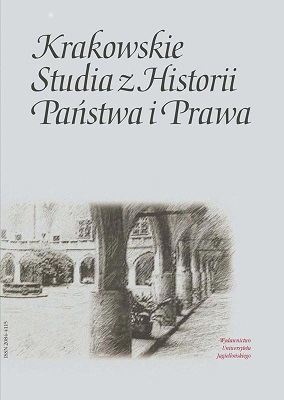Liberty in Jean-Jacques Rousseau: between the Ancient and the Modern
Liberty in Jean-Jacques Rousseau: between the Ancient and the Modern
Author(s): Iwona Barwicka-Tylek, Dorota Pietrzyk-ReevesSubject(s): Epistemology, Political Philosophy, Social Philosophy, Political history, Comparative politics
Published by: Wydawnictwo Uniwersytetu Jagiellońskiego
Keywords: J.-J. Rousseau; liberty; republicanism; neorepublicanism;
Summary/Abstract: Rousseau’s philosophy can be situated as a continuum between the ancient and the modern traditions; we argue that it does not fully belong to either and this is particularly evident in his discussion of liberty. Our point of departure is a view that in order to grasp peculiarity of Rousseaus’ understanding of liberty we need to go beyond the liberal tradition and its scheme of thinking about freedom as well as beyond the intuitive understanding of liberty. The second part of the article presents an analysis of the four different meanings of liberty that we find in Rousseau’s theory: natural, social, moral and civil. The most important for political philosophy is his discussion of the shift from the natural to social and civil liberty and the insistence that true freedom cannot be totally separated from morality. Finally, we discuss some of the contemporary interpretations of Rousseau’s political thought which often emphasize one of the different meanings of liberty that we find in his writings.
Journal: Krakowskie Studia z Historii Państwa i Prawa
- Issue Year: 9/2016
- Issue No: S.
- Page Range: 39-61
- Page Count: 23
- Language: English

